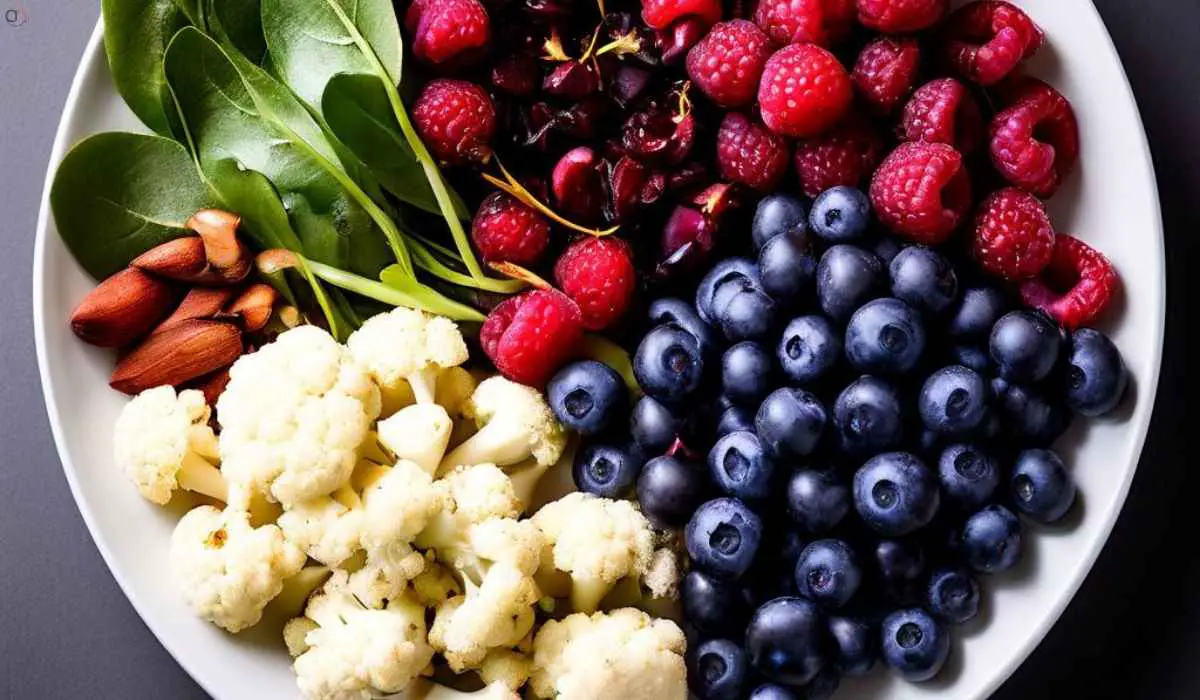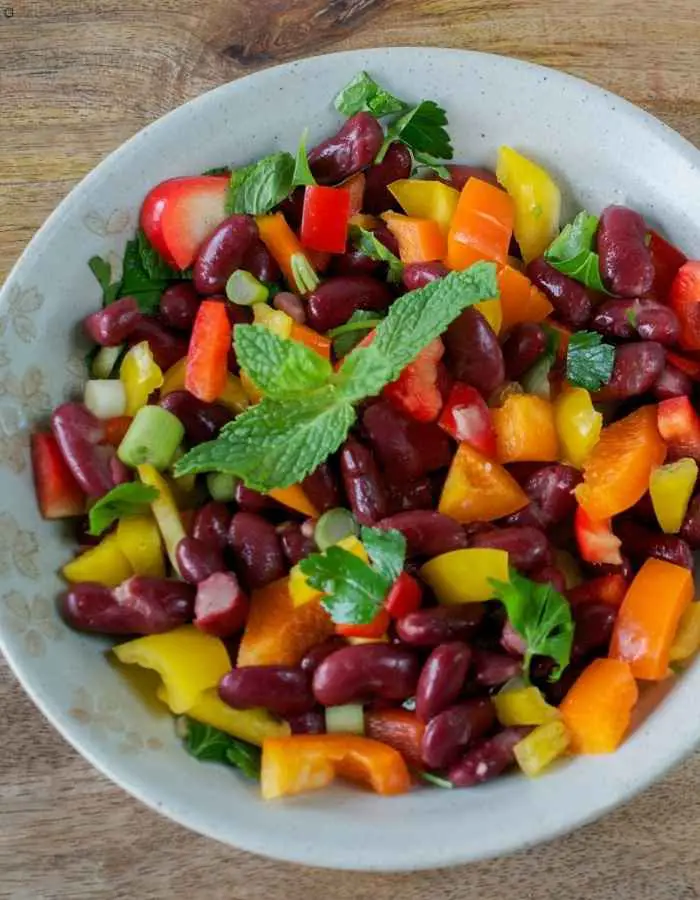20 Kidney Friendly Foods

Taking care of your kidneys starts with what’s on your plate! Whether you’re managing a kidney condition or simply aiming to support long-term kidney health, eating kidney-friendly foods can make a real difference.
These foods are typically low in sodium, phosphorus, and potassium while still being nutritious and delicious. In this guide, we’ll walk you through the best Kidney Friendly Foods, smart eating tips, and simple meal ideas to help you feel your best—one bite at a time!
What Are Kidney Friendly Foods?
Kidney-friendly foods are those that support healthy kidney function and help reduce the workload on your kidneys. These foods are especially important for people with chronic kidney disease (CKD) or those looking to maintain overall kidney health.
The main goals of a kidney-friendly diet are to limit:
-
Sodium, to help control blood pressure and reduce fluid retention
-
Potassium, to prevent heart problems caused by high levels in the blood
-
Phosphorus, to protect bones and blood vessels
-
Protein (in some cases), to reduce waste buildup in the blood
Kidney-friendly foods tend to be:
-
Low in sodium (less salt)
-
Moderate to low in potassium and phosphorus
-
Packed with vitamins and antioxidants
Examples include cauliflower, berries, white rice, egg whites, apples, and cabbage. Choosing these types of foods helps protect your kidneys and promotes better overall health.
Top 20 Kidney Friendly Foods:
These foods are generally low in sodium, potassium, and phosphorus, making them gentle on your kidneys—while still being nutritious and tasty!
1. Cauliflower – A versatile veggie rich in fiber, vitamin C, and anti-inflammatory compounds.
2. Blueberries – High in antioxidants and low in potassium.
3. Sea bass – A great source of high-quality protein with lower phosphorus than other fish.
4. Red grapes – Loaded with antioxidants and naturally low in potassium.
5. Egg whites – High in protein and low in phosphorus and fat.
6. Garlic – Adds flavor without the salt and offers anti-inflammatory benefits.
7. Cabbage – Full of vitamins and fiber, and kidney-safe.
8. Skinless chicken – A lean source of protein with less phosphorus than dark meats.
9. Bell peppers – Rich in vitamin C and low in potassium.
10. Onions – Great for seasoning without salt; supports detox functions.
11. Apples – A fiber-rich, heart-healthy snack that’s easy on kidneys.
12. Cranberries – Help prevent urinary tract infections and support kidney health.
13. Olive oil – A healthy fat source with anti-inflammatory properties.
14. Pineapple – A low-potassium fruit alternative that’s also hydrating.
15. Raspberries – High in fiber and antioxidants, but gentle on potassium.
16. White rice – A safe grain choice with low potassium and phosphorus.
17. Zucchini – Low in potassium and easy to prepare in many dishes.
18. Turnips – A kidney-safe replacement for potatoes.
19. Cherries – Rich in antioxidants and kidney-friendly in moderation.
20. Rice milk (unsweetened) – A non-dairy milk with low potassium and phosphorus levels.
Tip: Always consult your healthcare provider or dietitian, especially if you have kidney disease, since potassium and phosphorus needs can vary.
Foods to Limit or Avoid:
When supporting kidney health, it’s important to avoid foods that can put extra strain on your kidneys. Here are common categories and examples to watch out for:
1. High-Sodium Foods
Excess salt can increase blood pressure and fluid buildup.
-
Processed meats (bacon, ham, sausages)
-
Canned soups and vegetables (unless labeled low-sodium)
-
Fast food and salty snacks (chips, pretzels)
-
Packaged meals and frozen dinners
2. High-Potassium Foods
Too much potassium can affect heart rhythm in people with kidney issues.
-
Bananas, oranges, potatoes, tomatoes
-
Avocados
-
Spinach, sweet potatoes
-
Beans and legumes
3. High-Phosphorus Foods
Elevated phosphorus levels can weaken bones and damage blood vessels.
-
Dairy products (milk, cheese, yogurt)
-
Dark sodas and soft drinks
-
Processed foods with phosphorus additives
-
Nuts and seeds
4. Excessive Protein (in later-stage kidney disease)
While protein is essential, too much can increase waste buildup.
-
Large portions of meat or fish
-
High-protein processed snacks and bars
Always tailor your diet based on medical advice—what’s restricted can vary depending on your stage of kidney health and lab results.
Smart Cooking and Meal Planning Tips:
Eating kidney-friendly doesn’t mean sacrificing flavor or variety. With a few smart strategies, you can create meals that support your kidney health and still taste great.
1. Use Herbs & Spices Instead of Salt
Flavor your dishes with fresh or dried herbs like rosemary, basil, thyme, garlic, and lemon juice to reduce sodium without giving up taste.
2. Soak & Boil High-Potassium Veggies
Double-cooking methods like soaking and boiling can reduce potassium content in vegetables like potatoes and carrots.
3. Batch Cook & Portion Ahead
Prepare kidney-friendly meals in batches and portion them into containers to make mealtime quick, easy, and stress-free.
4. Read Labels Carefully
Look for “low-sodium,” “no added phosphorus,” and “potassium-free” on food labels. Avoid items with additives ending in “-phos.”
5. Limit Processed & Pre-Packaged Foods
Fresh is best. When possible, cook from scratch to avoid hidden sodium and phosphorus in processed ingredients.
6. Balance Your Plate
Include a lean protein, a small portion of carbs like white rice or pasta, and low-potassium vegetables to create a balanced, kidney-safe meal.
Planning ahead helps you stay on track—and keeps your kidneys happy!
Sample Kidney-Friendly Meal Ideas:
Here are three simple, tasty meal ideas that are gentle on your kidneys and packed with nutrition:
Breakfast:
Egg White Scramble with Bell Peppers + White Toast
– Scramble egg whites with chopped red and green bell peppers, and season with garlic and herbs.
– Serve with one slice of white toast and a small apple.
Lunch:
Grilled Chicken Salad with Cabbage & Olive Oil Dressing
– Grilled skinless chicken breast over shredded cabbage, cucumbers, and red grapes.
– Drizzle with olive oil and lemon juice.
– Enjoy with a handful of unsalted rice crackers.
Dinner:
Baked Tilapia + Steamed Cauliflower + White Rice
– Season tilapia with lemon and herbs, bake until tender.
– Serve with lightly steamed cauliflower and a small side of white rice.
Tip: Stay hydrated with water or kidney-safe beverages like cranberry juice (unsweetened) and consult your dietitian for customized portions.
When to Talk to a Dietitian:
If you’re managing kidney disease or want personalized guidance for a kidney-friendly diet, consulting a registered dietitian is a smart move. Here are some key reasons to reach out:
-
You have chronic kidney disease (CKD) and need a tailored eating plan to slow progression.
-
You’re on dialysis and require specific nutrient and fluid management.
-
You struggle with balancing potassium, phosphorus, or protein intake based on your lab results.
-
You want help meal planning to make kidney-friendly eating easier and more enjoyable.
-
You have other health conditions like diabetes or high blood pressure that impact your kidneys.
A dietitian can customize recommendations based on your unique needs, monitor your progress, and provide practical tips to keep your Kidney Friendly Foods delicious and kidney-safe. It’s always better to get expert support to protect your kidney health long-term!
Key Take Away:
- Eating kidney-friendly foods is a powerful way to support your kidney health and overall well-being.
- By choosing low-sodium, low-potassium, and low-phosphorus foods, cooking smartly, and planning meals thoughtfully, you can enjoy delicious dishes that are gentle on your kidneys.
- Remember to consult a healthcare professional or dietitian for personalized advice.
- Don’t forget to save this guide on Pinterest and share it with friends and family who want to keep their kidneys happy and healthy!
Read Next: 10 High Protein Foods
FAQs:
1. What foods should I avoid if I have kidney disease?
Limit high-sodium, high-potassium, and high-phosphorus foods like processed meats, bananas, dairy, and canned soups.
2. Can I still eat fruits if I have kidney problems?
Yes! Choose low-potassium fruits like apples, berries, and grapes, but always check with your dietitian.
3. How important is protein in a kidney-friendly diet?
Protein is essential but may need to be limited depending on your kidney function and doctor’s advice.
4. Are all vegetables safe for kidney health?
Many vegetables are great, but some high-potassium ones like spinach and sweet potatoes should be limited.
5. How can I make my meals flavorful without salt?
Use herbs, spices, garlic, lemon juice, and vinegar to add taste without increasing sodium.
6. Should I see a dietitian if I have kidney issues?
Yes, a dietitian can create a personalized plan to meet your nutritional needs and protect your kidneys.






